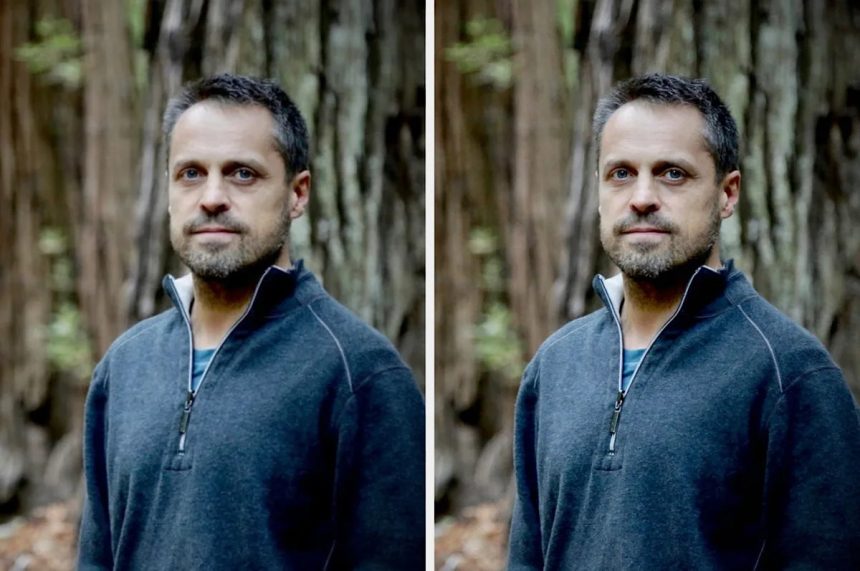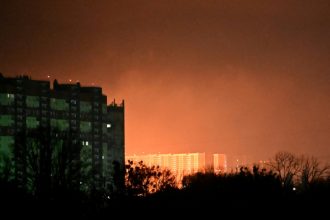I still remember the blood. The vultures. Most of all, I remember the stench.
We had been riding on a bumpy dirt road for hours, my stomach in knots before the Jeep even left Nairobi, twisting more and more as we twisted deeper into the bush.
We were looking for elephants. Kills, to be more precise. As we drove past wildebeest and impala, I thought I knew how I would react — how it would feel — but how can anyone know what will happen when they come face-to-face with death?
We came upon a dry patch of savannah — dry except for the red pooling and painted across the tall grass, everywhere. And everywhere, spent shell casings fired from AK-47s. Standing over a family of elephants, or what was once a family, I felt helpless, angry, powerless.
It was 2010, the height of the ivory war, when poachers would open fire on anything with tusks. I had seen reports on CNN, read about it in The New York Times, and I knew the global market for ivory carvings and statues was causing destruction here. But knowing that intellectually, and seeing a baby elephant hacked to pieces in real life is something else.
At the time, there were rumors that poached ivory was being sold to al Shabaab, the Somali extremists who pledged allegiance to al Qaeda. Word was that Shabaab smuggled and sold this “white gold” to overseas buyers, using the profits to fund attacks like the Westgate shopping mall assault that killed 71 in downtown Nairobi in 2013. And here we were, in Tsavo National Park, deep in Shabaab’s territory at a crime scene.
The killers were so sure they wouldn’t be caught, they left their evidence strewn across the bush. And they were right — no one would hunt them. That’s because most people, including most authorities, don’t see environmental crime — which includes illegal logging, illegal fishing, gold and mining and many other linked crimes in addition to this kind of illegal wildlife trade — as real crime. What’s worse, they don’t realize organized criminal groups often fund a laundry list of other crimes, from narcotics to human trafficking, through their environmental crimes.
Photo Courtesy Of Andrea Crosta
At nearly $300 billion, environmental crime is the fourth-largest criminal enterprise on earth.
The same groups that traffic people and drugs also deal in natural resources, and they do it because it’s big business, while also being lower risk than many other crimes. That’s why “large and powerful organized crime groups” are “operating in some of the most fragile and diverse ecosystems from the Amazon to the Golden Triangle” of Southeast Asia, according to the United Nation’s 2024 World Wildlife Crime Report.
I didn’t know all that on that hot Tsavo day, but it was obvious even then that this was bigger than poaching. The men with me were rangers from the Kenya Wildlife Service, trained and tough, but without the resources to investigate transnational crime and terror, we were losing a war that couldn’t be fought by scientists or rangers alone.
When I realized this, I told myself I would no longer be a bystander. I would hunt the hunters. The question was, where to begin?

Photo Courtesy Of Andrea Crosta
Without knowing where that commitment would take me, I started doing just that. After that dark day, I used my background as a security consultant to help uncover the financial link between al Shabaab’s involvement in the ivory trade and terrorism (a link many refused to believe until officials admitted it was real).
No one — no law enforcement group or conservation group — was hunting the individuals at the top of these networks. When I realized that, I founded my nonprofit, with the goal of using surveillance and undercover monitoring to investigate and dismantle environmental crime networks.
We operate like an intelligence agency for the planet, using informants, assets and surveillance to build cases and share evidence with authorities who then take it the last mile and make arrests. In this way, we have investigated crimes around the world, from rhino trafficking to illegal gold mining, leading to dozens of arrests. In 2023, evidence gathered by my team helped the U.S. Fish and Wildlife Service and Department of Homeland Security arrest key players in an international trafficking network.

Photo Courtesy Of Andrea Crosta
Fifteen years later, we still follow the same model. Posing as buyers, we take our time to collect inside information — evidence of sales and syndicates — collaborating with federal agencies to tie environmental crimes to transnational crime groups.
It takes a unique set of skills to track multiple criminal enterprises and earn the trust of people most wouldn’t dare speak to, let alone meet. Some of our targets are connected to the embassies and consulates of unfriendly nations, some are militants, some are gangsters. The constant is our undercover work to see and study the threat.
Spying is like building a giant puzzle without knowing what the puzzle looks like. It takes years to build — which means resisting the temptation to make an easy early arrest. You must wait and weave a web to take out whole networks. You don’t close the net until you know everything about the supply chain.
Patience means cutting off 20 heads, not just front-line soldiers. That’s the difference between long-term intelligence and short-term investigation.
“The same people illegally trafficking gold in Latin America or diamond mining in West Africa [are] financing fentanyl sales with wildlife parts in Mexico,” explains David Luna, who spent 20 years at the State Department fighting what’s called environmental crime convergence.

Photo Courtesy Of Andrea Crosta
“Environmental crime still isn’t taken seriously enough,” warns Charles Barber, the natural resources governance director at the World Resource Institute, which in April published a report on the convergence of environmental crime with corruption, money laundering and human rights abuse.
Lionel Hachemin, the director of wildlife crime at the International Fund for Animal Welfare, says communicating this threat means re-education. It starts with the donors who are largely funding this fight, and who want to see results for their money. That often means arresting poachers, who are the most visible target for law enforcement. Like in all other crime organizations, those at the top are harder to see — they exist in shadow, hiding behind legitimate businesses, financial institutions and officials.
But poachers are often simply trying to feed their families; they can’t afford to say no to the meager earnings the work provides, and arresting them does little to impact the overall network or create lasting change. What I’ve learned fighting deforestation in the Amazon, wildlife traffickers in China and illegal fishing in Mexico is that we must target the heads of these networks.
My team learned this lesson fighting drug traffickers. Every time you seize a ton of cocaine, for instance, traffickers will send another ton. It’s just the cost of business.
Related: 23 Women Opened Their Vault And Admitted Shocking Secrets They Keep From Men

Photo Courtesy Of Andrea Crosta
Resource crime is different because resources are finite and the species often endangered. If you make an arrest too quickly and don’t destroy the networks, the impact on nature is huge. A bust looks good on TV, but it means that criminals will have to kill even more animals to fill their quotas.
A few years ago, we were undercover in Vietnam posing as buyers, and a major trafficker showed us dozens of rhino horns. “What happens if we pay and customs seizes the horns?” we asked. I’ll never forget how he smiled.
“Don’t worry,” he said. “We’ll just send it again, free of charge.”
The public needs to know that fentanyl was traded by Chinese gangs for environmental resources supplied by Mexican cartels, Luna tells me. Maybe they soon will. With eight cartels now designated as terror groups, that could bring attention and funding, says Vanda Felbab-Brown, a senior Brookings Institute fellow studying crime and terror.
This is the shadow side of conservation that scientists aren’t trained for — and most nongovernmental organizations prefer to ignore. But until authorities see that eco-crimes are part of a network of crimes that are perpetrated by sophisticated organized crime groups, the exploitation and violence will continue.
Andrea Crosta is the founder of Earth League International, a nonprofit that uses intelligence methods like surveillance and undercover monitoring to investigate and dismantle environmental crime networks.
This article originally appeared on HuffPost in July 2025.
Also in Goodful: 15 Unusual Experiences People Grew Up Believing Were Universal But Turned Out To Be Personal
Also in Goodful: People Are Sharing Their Biggest “How Doesn’t Everyone Know This?” Facts, And I’m Honestly Embarrassed I Never Realized Some Of These
Also in Goodful: “He Thinks This Is Hostile And He Is Correct” — Women Are Sharing The “Unhinged” Ways They Practice Microfeminism That Reaally Grind A Small Man’s Gears









